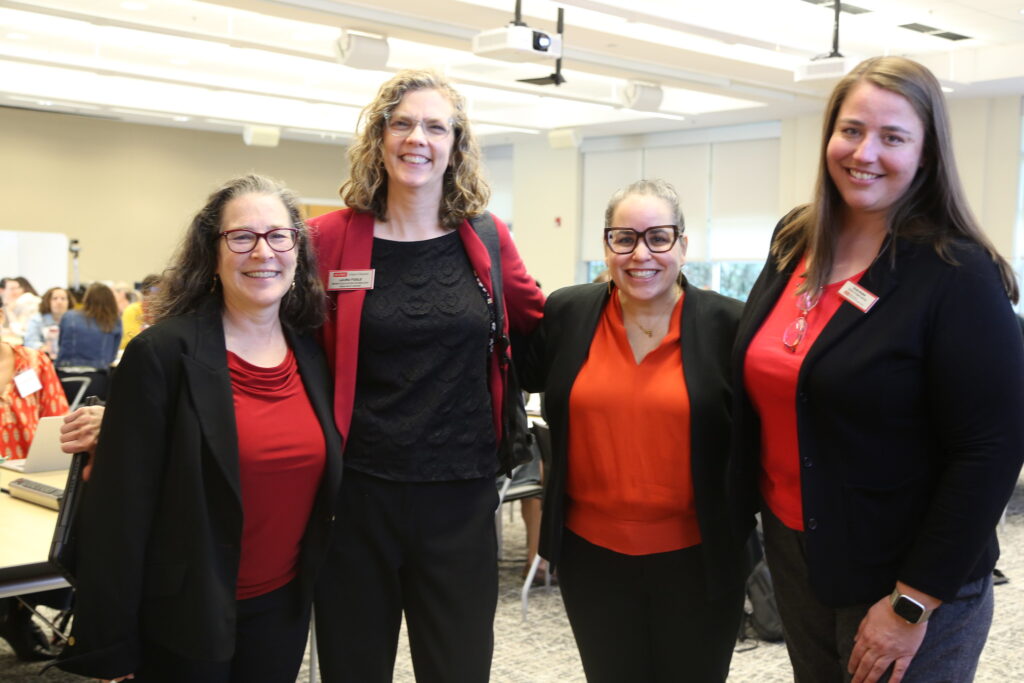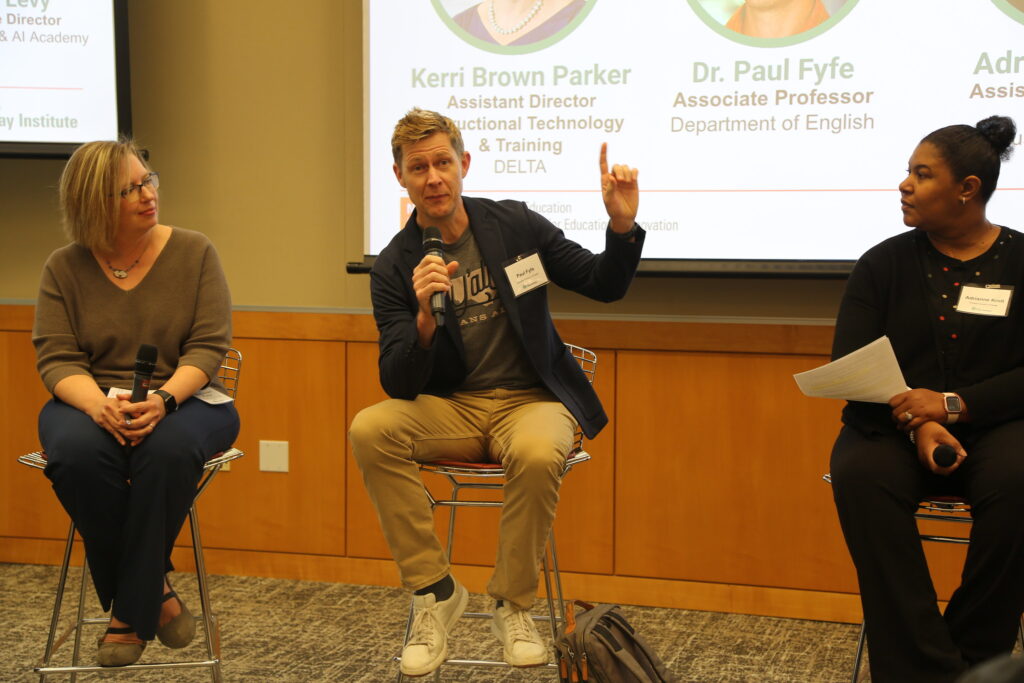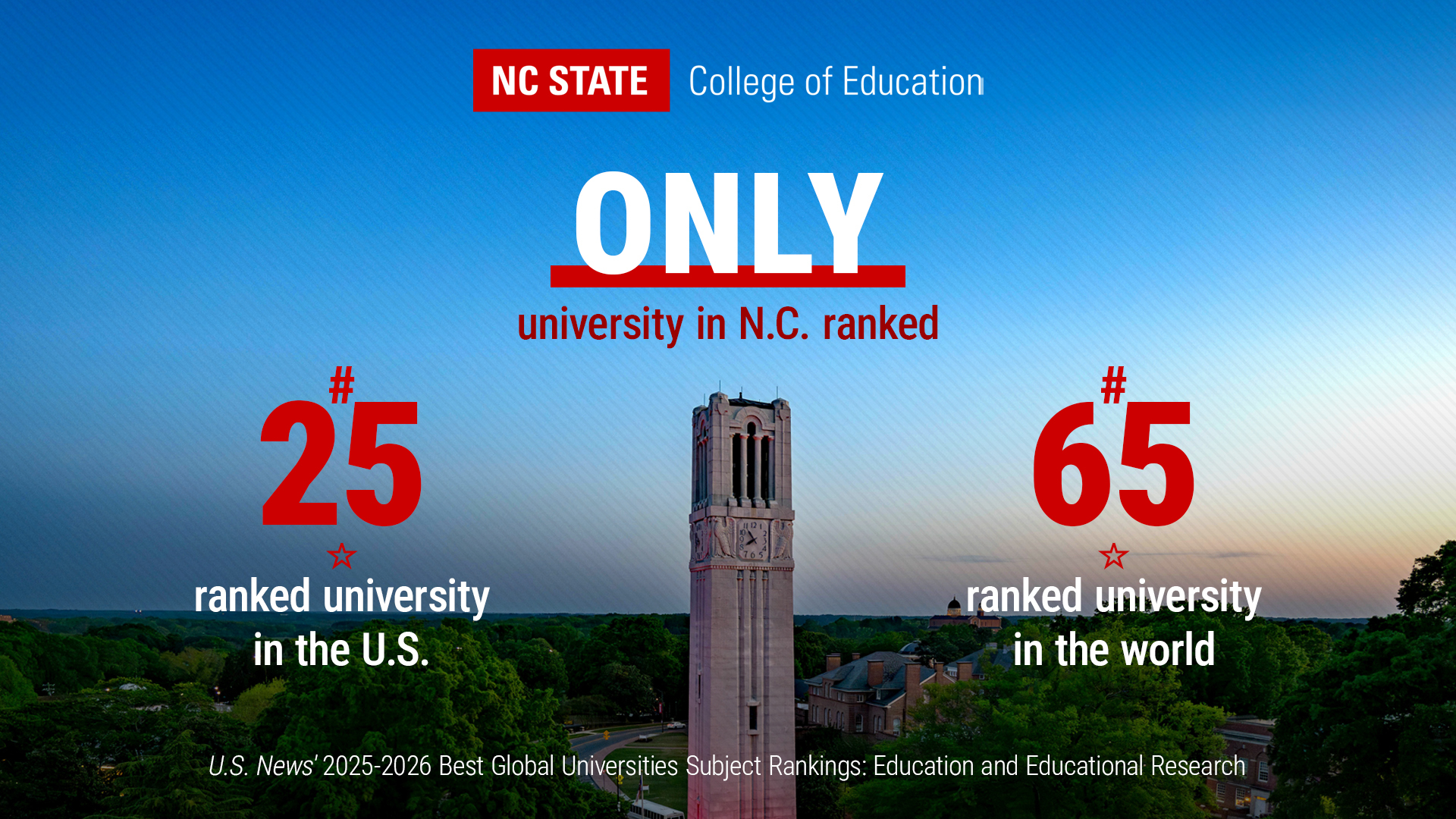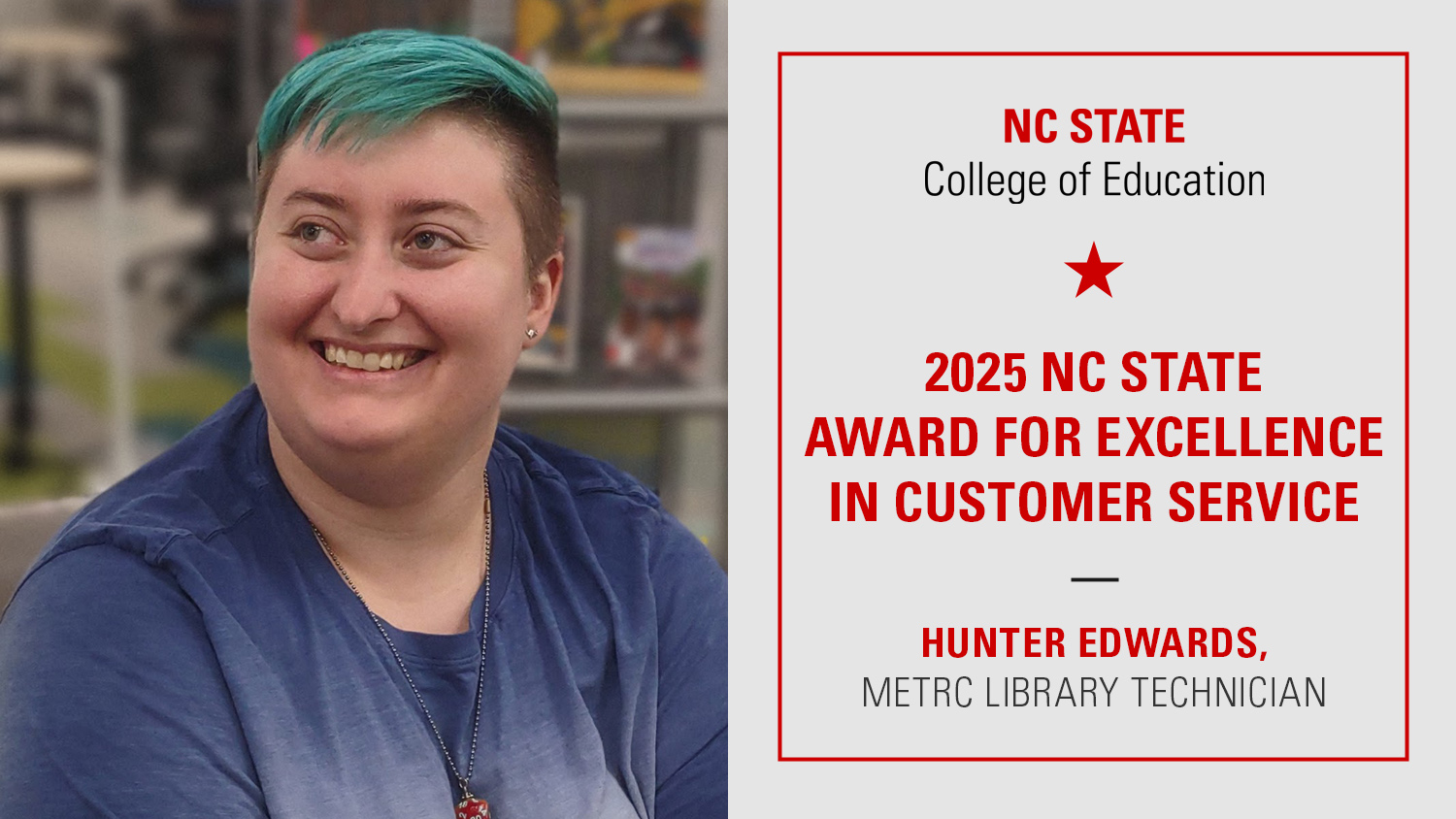“NC State is a really great place for these conversations not only because it’s a school with evident strengths in STEM but also because it has world-class programs like the Friday Institute as well as in the humanities and social sciences,” said Paul Fyfe, associate professor in the Department of English; program faculty in the Communication, Rhetoric and Digital Media Program (CRDM); and co-PI for NC State’s Center for AI in Society and Ethics. “A place like NC State is really well equipped to draw upon all those domains of its expertise to confront the ongoing transformations that AI is bringing.”
NC State has declared that it is a Data Science and AI university where everyone can get involved. Faculty and staff are exploring AI integration in education, research and industry, from creating an AI advisory group for the university as well as building an AI Hub for NC State, which launched March 31. The hub features AI tools, resources and guidance for those looking for support to enhance their teaching, learning, research and work.

“People are so much more excited about teaching and about the ideas they can get from AI, and it really has sort of created, I feel like post pandemic, a little bit of reinvigoration of something new and exciting and cool that we can try,” said Kerri Brown Parker, assistant director of instructional technology and training for Digital Education and Learning Technology (DELTA) at NC State. “One of the ways that NC State can foster, sort of, both innovation and the idea of the things that they need to be careful about as a large institution is really to encourage people to play with AI and to explore and experiment and try things out.”

Panelists during the Igniting the Future panel, including Fyfe and Parker, discussed exploring the benefits and concerns around AI integration into teaching and learning as well as using AI as a tool for efficiency but not necessarily for learning.
“The tools should not lead the teachers…I think together teachers and students should be talking to each other openly about the potentials and limitations of these things,” said Fyfe. “I’ve learned so much about the capacities of AI and use cases from students as they’re experimenting with it on the ground. At the same time, I hope students have learned a lot about the examples and exercises we do together putting AI through its paces to understand how it might, in my case, augment the practice of writing in different genres, different ways that it may enhance ideation and brainstorming as well as some of the pitfalls about what it knows, who that knowledge represents and excludes, and how that may interfere with crucial parts of cognition and critical thinking in the learning process.”
Fyfe stressed the importance of AI literacy, which includes an understanding of what AI is, how it works, and when, why and if it should be used in different contexts. AI literacy also includes learning the skills to use it and understanding and evaluating AI systems and tools.
Digital Promise’s AI Literacy framework describes the development of AI literacy as “a necessary prerequisite to harnessing the power of emerging technologies for powerful teaching and learning.” AI literacy can equip learners with “essential skill sets to responsibly use emerging technology for the good of society throughout their lives and in the workforce” and help users “work collaboratively to make more informed decisions about if and how to adopt emerging technologies to promote safe and effective use of AI tools in our lives.”
But ultimately, panelists addressed the humanity that is still needed to operate technology, allaying any fears that technology could replace humans.
“In the new reality, the skills that matter most are not just technology,” said Helen Chen, senior vice provost for instructional programs at NC State. “They are deeply human: curiosity, critical thinking, collaboration, ethical reasoning and the ability to ask valid questions. While we explore what’s possible with AI-enabled education, let’s also ensure we preserve the messy, yet meaningful, experience of learning. AI-enabled tools can guide the journey, but the human experience ignites the discovery along the way.”
- Categories:



